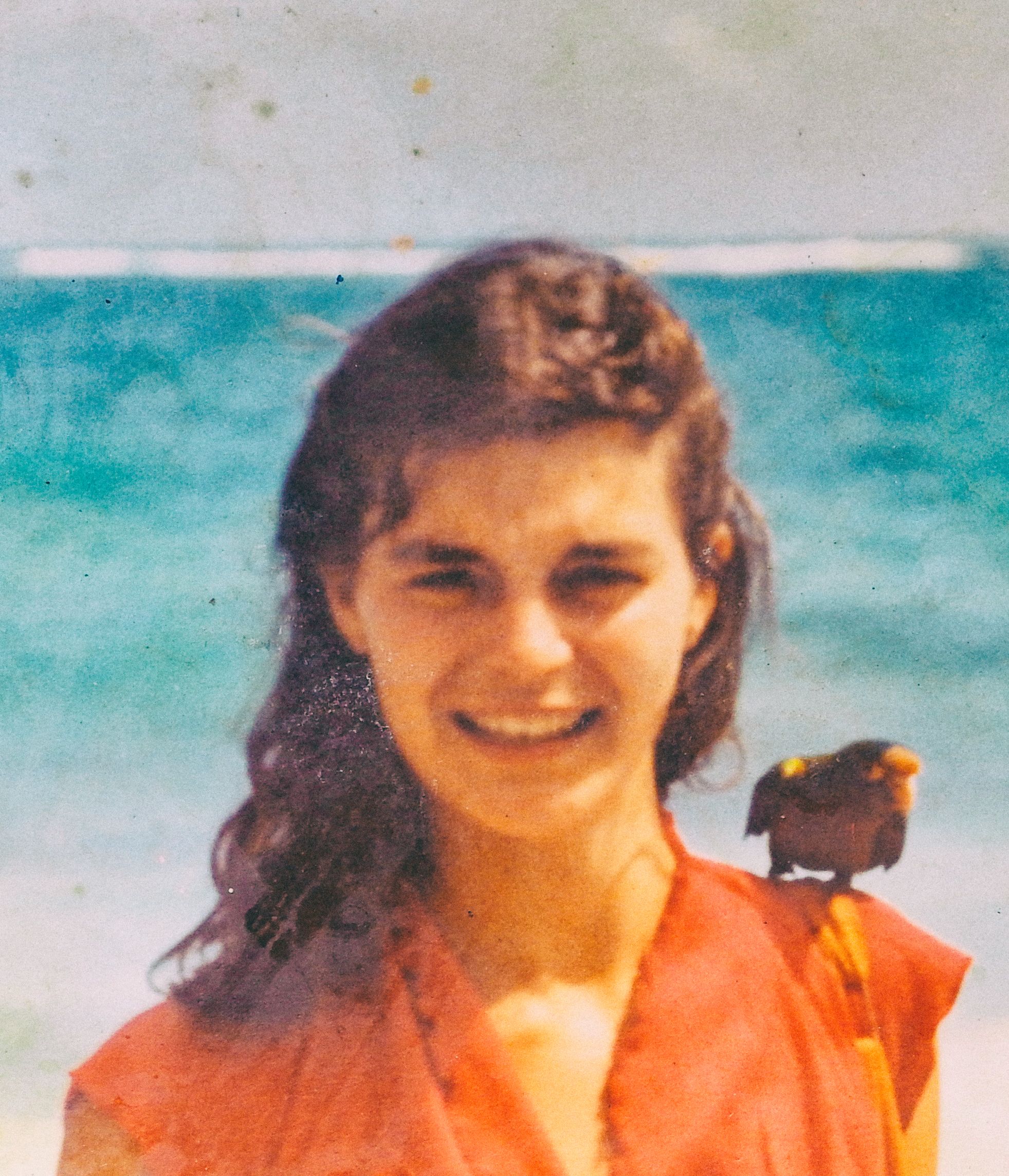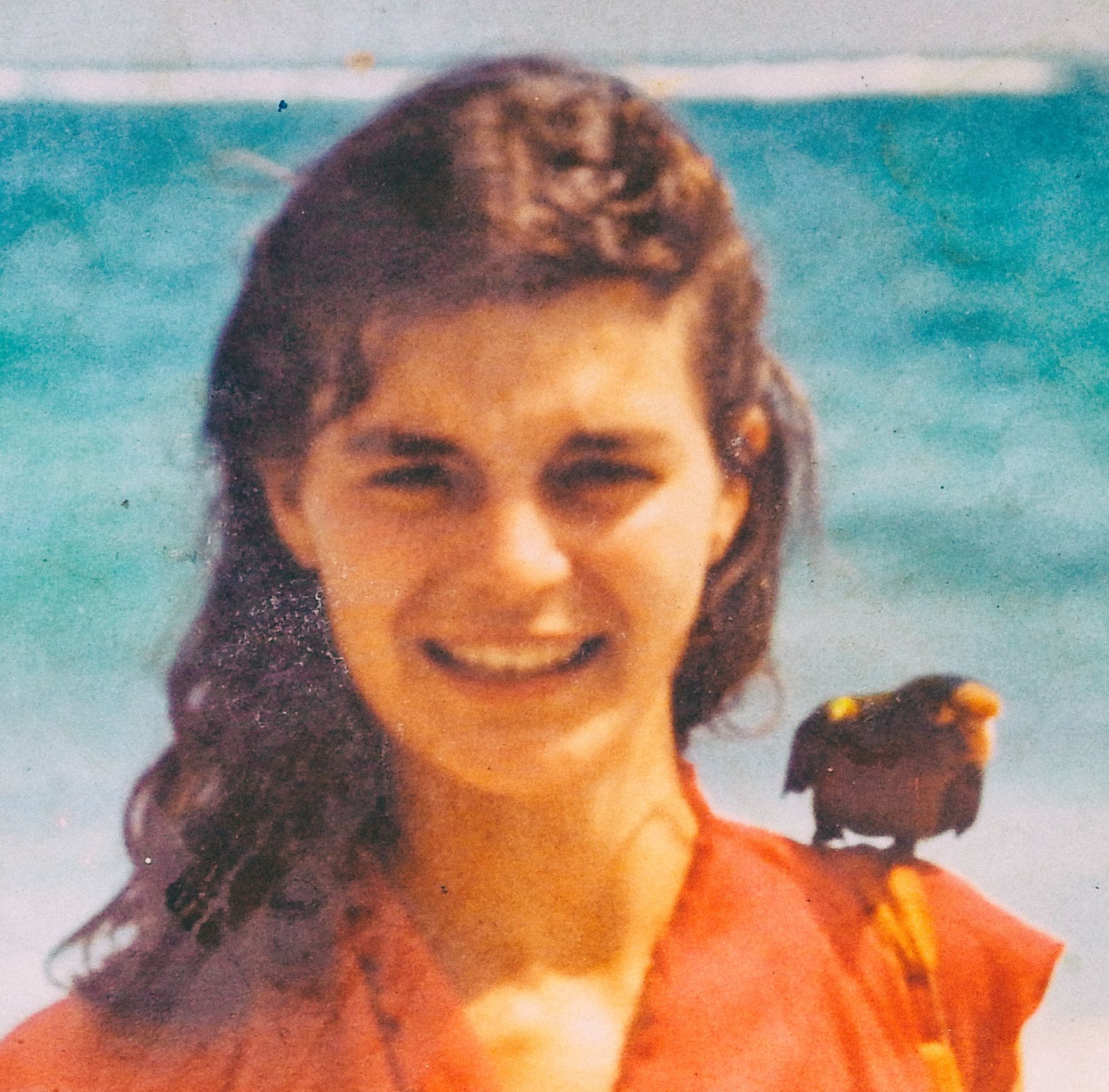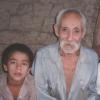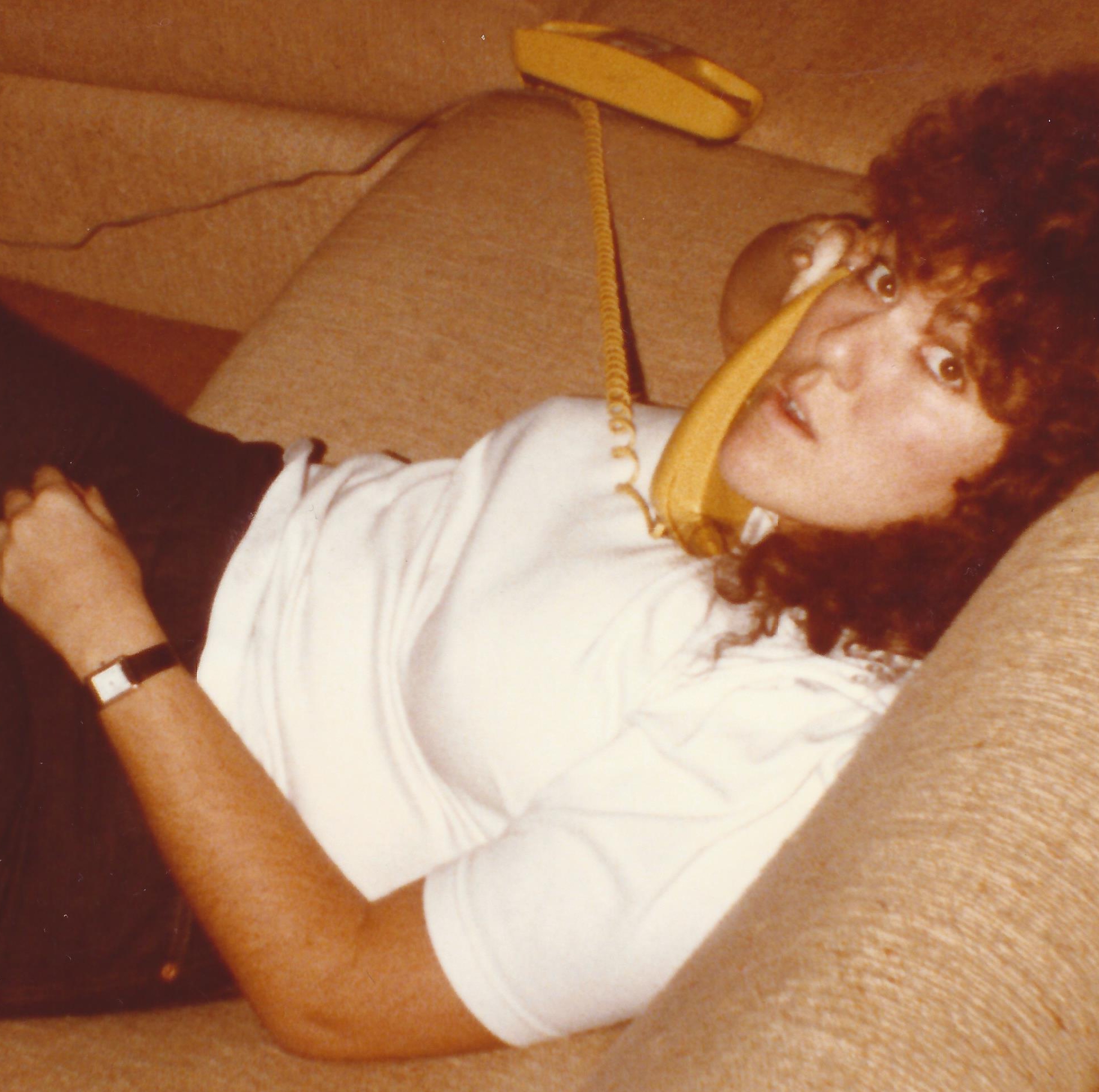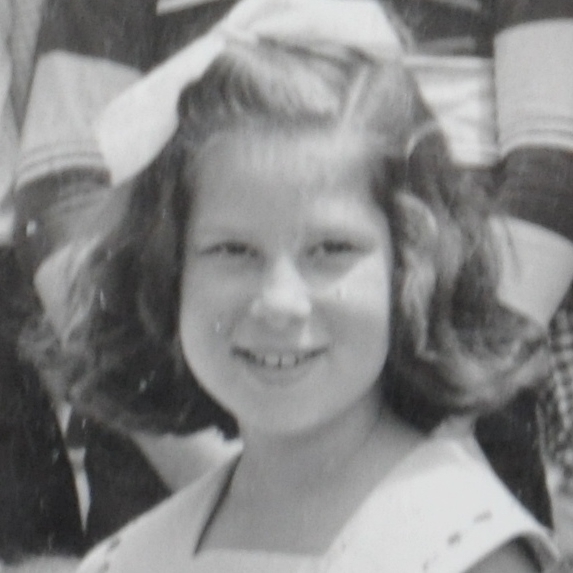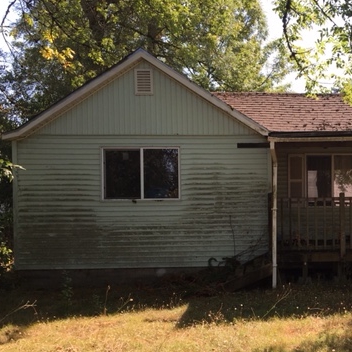The yellow moon hung low over the Gulf of Mexico on the western horizon; its shimmering rays glinted off the deep turquoise waters of its salty surface. There was just enough moonlight for the three of us to be able to discern each other’s features as we giggled and emptied another beer bottle. The intense fear of the last few days seemed to dissipate with the ebb and flow of the water. The waves caressed the Yucateca shoreline with a gentle swoosh; Alberto, Gerhard, and I fell into a dead silence as the sun began to illuminate the eastern sky.
Soon the playa would be inhabited by fishermen setting out in their lanchas for their daily catch of barracuda, red snapper, bonito, and mahi mahi. Not long after that, as the heat would rise from the earth like a boiling spume, the beach would fill with screaming children calling out to their fathers vanishing into the blue horizon. Imagining their calls elicited a flood of memories of family days at the beach in Glengarry Park, where my younger sister and I would squeal, “Mommy, Daddy, wait for us!” as we tried to keep up with our parents wading into the frigid waters of the St. Lawrence. For a brief moment, I felt homesick.
The screeching of the gulls trailing the fishing boats reminded us that it was time to head back to the hotel. Alberto and I scrambled into Gerhard’s rented VW Beetle for the trip back inland. I can only remember the dull green blur of the ride as he raced through the parched and dying scrub that grew along the northern edge of the peninsula.
We bade farewell to our new friend Gerhard on the steps of the hotel, with the rising sun, and the two of us, still somewhat drunk, stumbled into our room laughing with the joy and relief of our night-long beach party-à-trois. Ixkilim, our green parakeet, greeted us with indignant squawks, letting us know how displeased he was about being locked up in his cage all night.
I worried about being evicted from the hotel, so I gently tickled Ixkilim and let him out of his cage so that he wouldn’t wake everyone in neighboring rooms.
“No lo dejes libre así.” Don’t leave him free like that, warned Alberto. “Se va a escapar.” He will escape.
I glanced at the gap between the door and the floor.
“Si, pero no lo podemos dejarle gritando tampoco.” Yes, but we can’t just let him squawk either. Against Alberto’s better judgement, I set the bird free in the room as we crawled into bed for a long overdue sleep.
I had acquired the bird in Mexico City’s notorious black market, Tepito, where Alberto and I worked selling handmade jewelry delicately crafted out of black coral and amber. We had met two years earlier as fellow beachcombers in Quintana Roo and had quickly formed a bond over our shared love of all things delivered by the sea. We would collect odd beach detritus and work together to create unique art objects, which we would leave, like cairns marking a path, embedded in our tracks in the sand. In addition to sculpting coral, Alberto spent hours carving miniature Olmec faces out of amber. Acquiring the amber, however, meant making regular forays into the highlands of Chiapas, where we harvested the raw rock out of the walls of secret grottos. The products of these adventures were what we sold in the Tepito market.
I carried the bird home in a thick paper bag through which he quickly chewed and escaped. I chased him down the aisle of the bus, grabbing at him between the legs of passengers. When I finally got a hold of him, he bit into my thumb, drawing blood. Our relationship was off to a rough start.
Over time, we grew quite fond of one another and Ixkilim’s nasty temperament abated. He became my constant companion, often perched on my shoulder, where he would pull out my earrings and casually toss them to the ground. He loved lying on his back in the palm of my hand and having his belly tickled.
I found life in the immense gray city increasingly unbearable; my heart was sinking into a permanent state of despair. Most days were so gritty that the snow-capped volcanoes could not be seen through the smog. We lived in a dangerous part of town, so I rarely left the house alone. At night, I was haunted by dreams of the Caribbean – recollections of its pungent humid air, glittering white sands, and the turquoise depths that were at once visible and unfathomable. Alberto’s original plan was that we would stay with his mother and his family in the city for a brief time, long enough to save money to buy art supplies and set aside a small cache to sustain us until we made enough money to return to Quintana Roo. But Mexico City proved to be much more demanding and expensive than we had foreseen. I had all but forgotten about my own family back in Canada.
My sister and I had grown up together in the pre-internet days of the great outdoors. Each day, snow or sleet, rain or sun, our mother insisted that we “get out of the house.” Bundled into our weatherproof gear, Lori and I would venture into a snowman's land of farm fields, tunnelling our way into imaginary landscapes, creating ice-sculpted passageways with windows onto our wintery world. We were among the very few anglophones in this area of rural Quebec, and our linguistic isolation consolidated our solidarity as siblings. Occasionally, a hapless francophone peer would venture, “Mais qu’est-ce vous faites là?” What are you doing in there? More often than not, the occasional friendly gesture would be met with icy silence as neither Lori nor I, despite our French last name, had acquired any proficiency in the language of our father. We were creatures of our created landscapes, happy to be alone together in our world of pretend. Neither entirely French nor English, my sister and I inhabited an in-between world of non-identity in a province awash in the turbulent world of Quebec’s identity politics. Living in Mexico meant I could leave behind the acrimonious atmosphere of the independence referendum as well as my parents’ inability to help us bridge the cultural gap woven into the fabric of their marriage.
My reveries of the turquoise sea, of the vivid enchanting greenery, and of the cheerful sounds of the forest waking in the early morning hours were intensifying, creating a longing to return to the seaside. My tolerance for the non-stop gray-spewing traffic, the sirens, the honking of impatient drivers, and the acrid smell of the air, thick with diesel, was diminishing by the day. It felt as if the city was choking the life out of me. It took some convincing and an ultimatum before Alberto finally conceded that we should return to the coast: I threatened to go without him.
“Ya hace seis meses que estamos aquí, cabrón. Yo tengo que ir al Caribe.” We’ve been here for six months already, cabrón. I have to go back to the Caribbean.
“Bueno, ya sabes que todavía no tenemos mucha plata.” Well, you know we still don’t have much money.
“Me vale madre que no tenemos plata. Nunca vamos a tener suficiente. Tenemos los materiales que necesitamos, haremos más plata p’allá que por aquí.” I don’t give a shit if we don’t have money; we will never have enough. We have the materials we need, we can make more money over there than we can here.
Alberto was more than tired of listening to my daily complaints about being in the city, enduring its polluted air and having to share close quarters with six other family members.
“Bueno pues, me voy sin tigo.” Alright then, I will go without you.
“Pues ya, de una vez, vamos.” Alright already, let’s go.
The sea air wrapped its cool fingers around my neck and filled my nostrils. Its vast familiarity awoke memories of times predating my own birth, of a distant but warmly welcoming home, a sweltering soup of evolutionary power. Living at the edge of the jungle, foraging at times for food, sleeping out in the open or in the precarious protection of a thatched palapa – this was the sweetest life possible. My dream death was to drown in the turquoise blue.
A few weeks after settling into a one-room shack in a small sheltered bay on western edge of the Yucatan Peninsula, we were visited one night by a cabal of men in a black van. They joined us, uninvited, around our campfire.
“Estamos buscando a Carlos.” We are looking for Carlos, said one of them. We were alone in this small copse of palm trees; the other two palapas in the inlet were unoccupied.
“No hay ningún Carlos por aquí.” There is no Carlos in these parts,” said Alberto.
One of the things I admired about Alberto was his ability to charm anyone with a smile and a joke. He had a rare combination of street smartness and caring generosity that usually won over ill-intentioned strangers. And, true to form, he soon had the men laughing and pulling out a bag of weed to smoke with us.
“Huele eso. Es el pelito rojo, puro. Ni si quieras necesitas fumarlo. Es la más potente de todo. Nadie puede comprar esa. No se vende.” Smell this. It is pure red flower. You don’t even need to smoke it. It is the most potent of all. You can’t even buy this stuff; it isn’t for sale. He demonstrated the potency by holding a bud to each person’s nose in order for everyone to snort the sticky aromatic floral substance.
The fellow who was looking for Carlos and making the rounds with the bud had his eye on me and mentioned that he was a chiropractor. “Y conozoco todo aspecto del cuerpo de una mujer." And I am an expert on women’s bodies. “Te gustaria un masaje shiatsu?” Would you like a shiatsu foot massage? As the joint made a couple of rounds, he began massaging my foot. Soon his hand was making its way to my knee and higher. I kicked him in the shins as hard as I could – all unseen under the picnic table. “Hija de puta!” Bitch! Furious, he jumped up and ordered his posse to leave. Alberto and I were more than a little shaken. The only things we had for protection were a machete and a carving knife. Those guys could easily have had guns and used them with impunity.
After a sleepless night, Alberto opened the door of the palapa to find about two ounces of pot in a bag on the ground. We looked at each other in terror. It meant that they would be back. Instinctively we both knew that we would have to leave the area immediately. There was a bus that headed up the coast the next morning. But we couldn’t even stay that long. Alberto visited Don Pablo Canche who lived at the inlet next door to see if we could spend the night with him and his family.
When we arrived with our bags and bird in tow, the bird greeted Don Pablo with a series of loud squawks.
“Ixkilim,” said Don Pablo, “El Ruidoso.” The noisy one.
Don Pablo was busy skinning a mountain lion he had shot in the bush. The skin peeled off more easily than the shell from an egg. Later that night, Don Pablo’s daughter visited us with a delicacy – a thick slice of lion brain on dry bread.
“Mi papa quiere saber si tienes miedo de la muerte.” My father wants to know if you are afraid of death, she asked.
“No, para nada,” No, not at all, I lied, perplexed at the question.
The next morning we caught the bus along the inland highway to Merida, Yucatan, where we rented a room in a small hotel off the main zócalo. It was here in Merida that we met our new friend Gerhart, our companion in Progreso, for that moonlit night overlooking the gulf.
Still hungover from the all-night beach party, I awoke to the lifeless silence of the mid-day siesta heat. Panicked, I jumped out of bed in a frantic search for the bird.
“Ixkilim – se escapó! Te debería haber escuchado.” Ixkilim – he’s gone! I should have listened to you.
Still not quite awake, Alberto rolled over in the bed, uncovering a shock of green feathers under his torso. The shredded sheets showed how much the bird had struggled before suffocating to death.
“¡Mira que pasó! ¡Sacate de la pinche cama!” Look at what happened! Get out of the damned bed, I screamed at Alberto.
“Qué? Qué paso, mi amor?” What? What happened, Love?
“¡Se murió Ixkilim! Se puso debajo de tí y no pudo respirar.” Ixkilim is dead. He crawled underneath you and could not breathe. I burst into tears.
Devastated by the loss of my beloved bird, we travelled to the edge of town. I cried again as I dug a small shallow grave with my bare hands. Later in the day, overcome with grief and nostalgia, I needed to touch base with my family. They had not heard from me in months.
I stood in line at the public telephone outlet in downtown Merida to make my collect call home to Canada. The line was quite long to get into a booth. I fidgeted nervously as the chatter around me condensed into an aural smear. The late afternoon heat and the crowds in the sweaty, seedy room turned my stomach into a knot. As the door to my booth finally opened, I leapt inside and anxiously waited for the operator to connect me to my home.
“You got my telegram!” exclaimed my mother, when she heard my voice.
“No, when did you send it?”
“I sent it to you an hour ago. You have to come home right away, your sister is in the hospital.”
“I never got your message, Mom; what is going on?”
“Lori Ann has leukemia. It was confirmed this morning in a blood test,” said my mother.
“How long has she been sick?”
“Last week, she came up the stairs into the kitchen wearing shorts and I was shocked to see heavy bruising all over her legs. I knew right away what it was. You father and I had to force her to go to the hospital. We need you to come home right away. I will explain everything when you get here. Dad will book a flight for you for tomorrow morning.”
The knot in my stomach tightened into a tomb-like stone. Barely ambulatory and completely disconnected from my surroundings, I needed Alberto to help me back to the hotel and pack my bags for the trip to Montreal.
The next seven weeks required of me a daily vigil at the edge of my sister’s bed as she navigated the noxious ravages of chemotherapy. The hospital staff brought a cot into the room so I could sleep. We spent most of our time drawing each other and chatting, exactly as the cherished times we had spent together as children.
If not for the death of Ixkilim, I would have missed the last days of her life.
Judith is a graduate of the Vermont College of Fine Arts (MFA Visual Arts), an independent multidisciplinary artist, an educator and a human rights defender who has created site-specific installations promoting peace, war-resistance and intercultural exchange. Her writing has been featured in NACLA, Siafu Magazine, and the Upstream Journal and her art practice has been featured in The New Quarterly, Hyperallergic, Génération d’idées, and on Les Nouveaux Explorateurs (Canal +). She has also had feature interviews on Global TV and CBC radio. In recent years, Judith has attempted to bridge the gap between art-making and activism. Collaborations with the art collectives Native Immigrant, Origamilitantisme, and Marquer les esprits have taken her art practice to Chile, to the heart of the student movement in Quebec, and served in humble support of justice for Missing and Murdered Indigenous Women in Canada.
